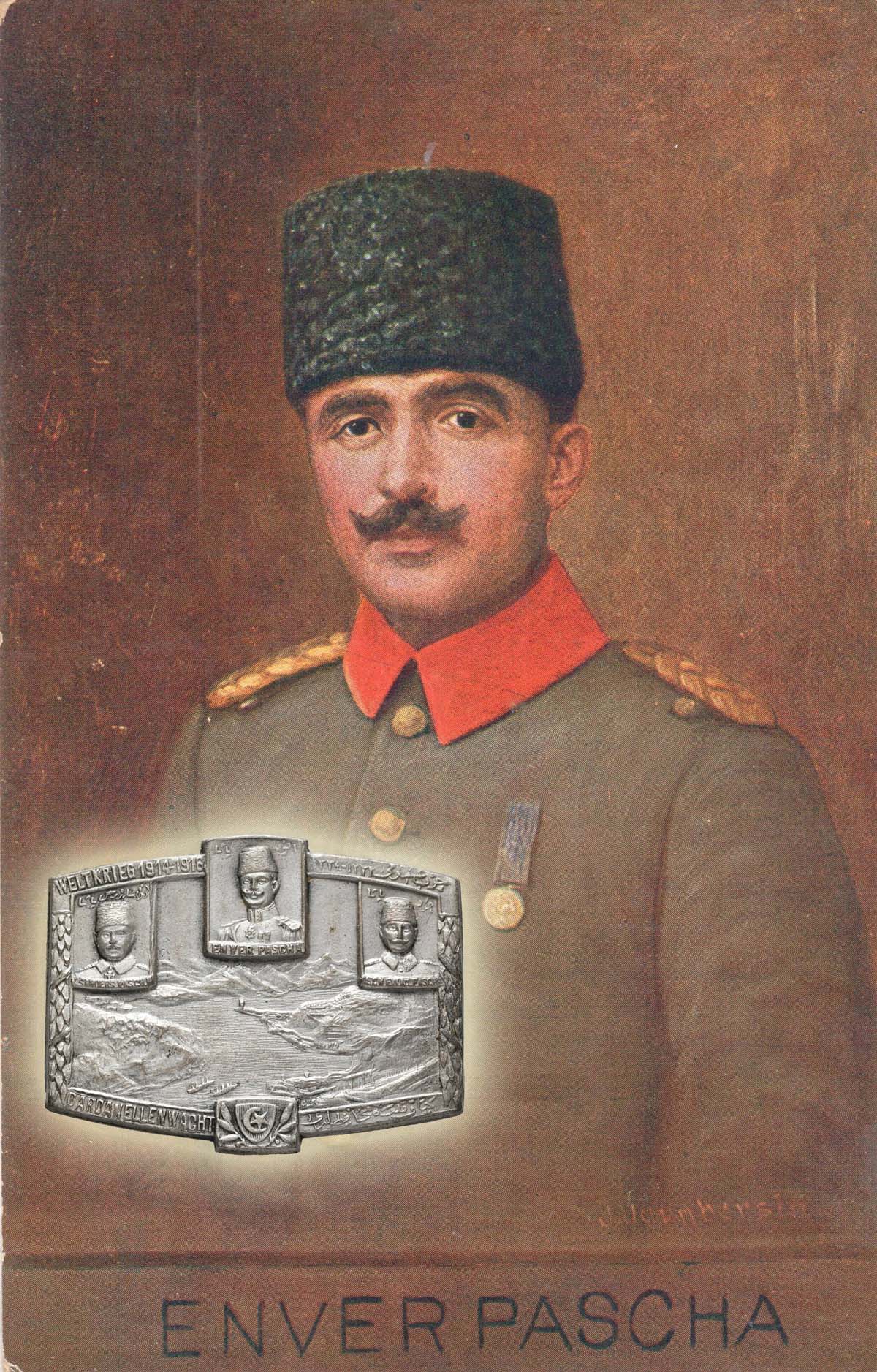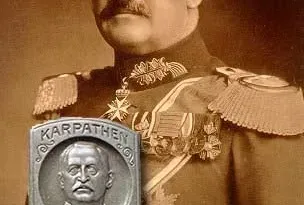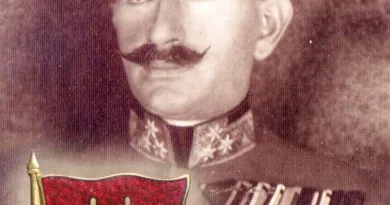Enver Pasha
Ismail Enver, a much-debated figure in Turkish history, was deputy commander-in-chief of the Turkish army involved in the fighting during the Great War. He was born in 1881 in Istanbul. One of the leaders of the young Turkish movement, following a coup in 1913, became the de facto rulers of the country along with Pasha Jemal and Talaat. The triumvirate of the three pashas sought the alliance of Germany, but also maintained good relations with the Monarchy as a balancing act.
As a military commander, Enver did not live up to expectations. Although he completed military schools in the Ottoman Empire, he had little experience as a young officer compared to his high rank. As early as the winter of 1914, he led to the catastrophic defeat of the 3rd Army marching against the Russians in the Caucasus. He blamed the Armenian minority for the defeat. The Armenians did sympathize with the opposing Russians, but it could hardly be believed that their impact on the course of the battle would have been significant. After that, however, the disarmament of the Armenian soldiers began and the deportation of the Armenian ethnic group from all parts of the empire into the desert around the Euphrates. Millions of Armenians lost their lives in the action.
Enver was then less involved in operational control. On the European battlefield, a German general, Otto Liman von Sanders, was given command, sent by the Germans to give advice to their Turkish ally. Under his leadership, Turkish troops successfully repelled an attack by British forces that landed on the Gallipoli Peninsula in 1915. It was not until 1918 that the Entente, bound on the European battlefield, resumed another serious attack on the Turks. First in Mesopotamia, then around the Gaza Strip and Palestine, Turkish forces were suppressed. In October 1918, the military power of the Turkish Empire also collapsed. Enver was removed from the post of Minister of Defense by the Sultan, by which time the Turkish government resigned.
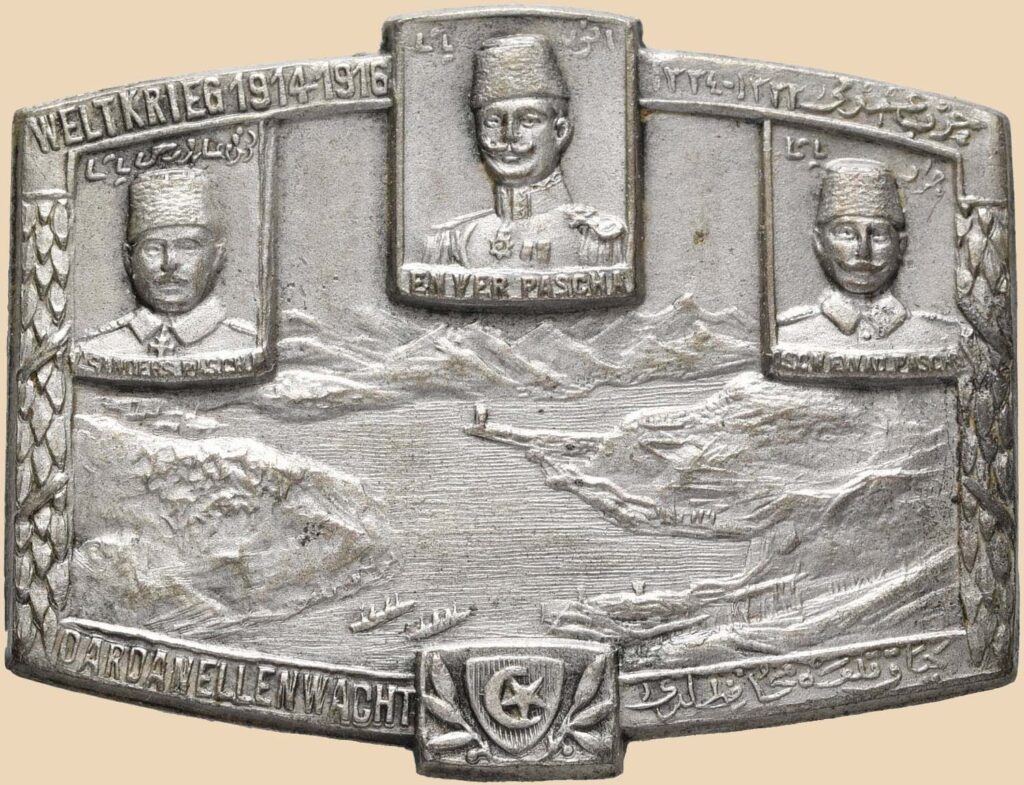
Subsequently, the young Turkish leaders fled Turkey on a German submarine. Enver was sentenced to death in his absence in 1919 for his involvement in the war. In 1920, he sought refuge in Bolshevik Russia. He tried to get support against Kemal, who had come to power in Turkey. He did not receive this, Soviets were seeking an alliance with Kemal. The Soviets commissioned him to quell an uprising in Central Asia, but Enver joined the insurgents instead. In a battle with the Soviets, he fell near the Afghan border in 1922. His body was brought back to Turkey in 1996 and reburied in Istanbul.
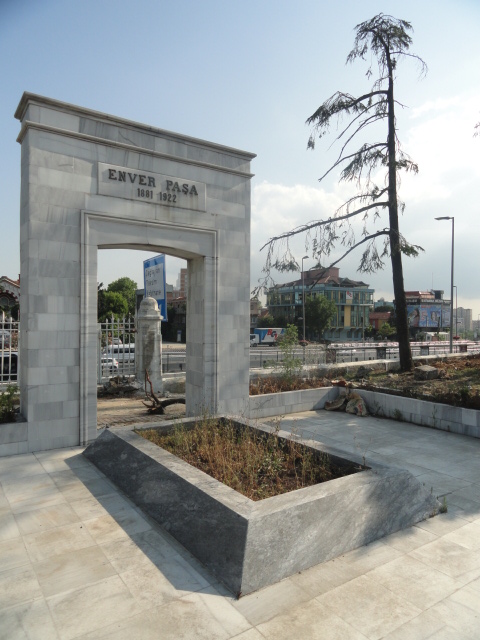
Pasha Enver was popular in the Monarchy. He was considered the main ally of the Central Powers in Turkey. True to the customs of the age, most badges depict, of course, it is not him but rather the portrait of the sultan. There is one exception, a beautiful badge commemorating the defense of the Dardanelles, which also features his portrait between the portraits of Sanders and Sevan pashas.

